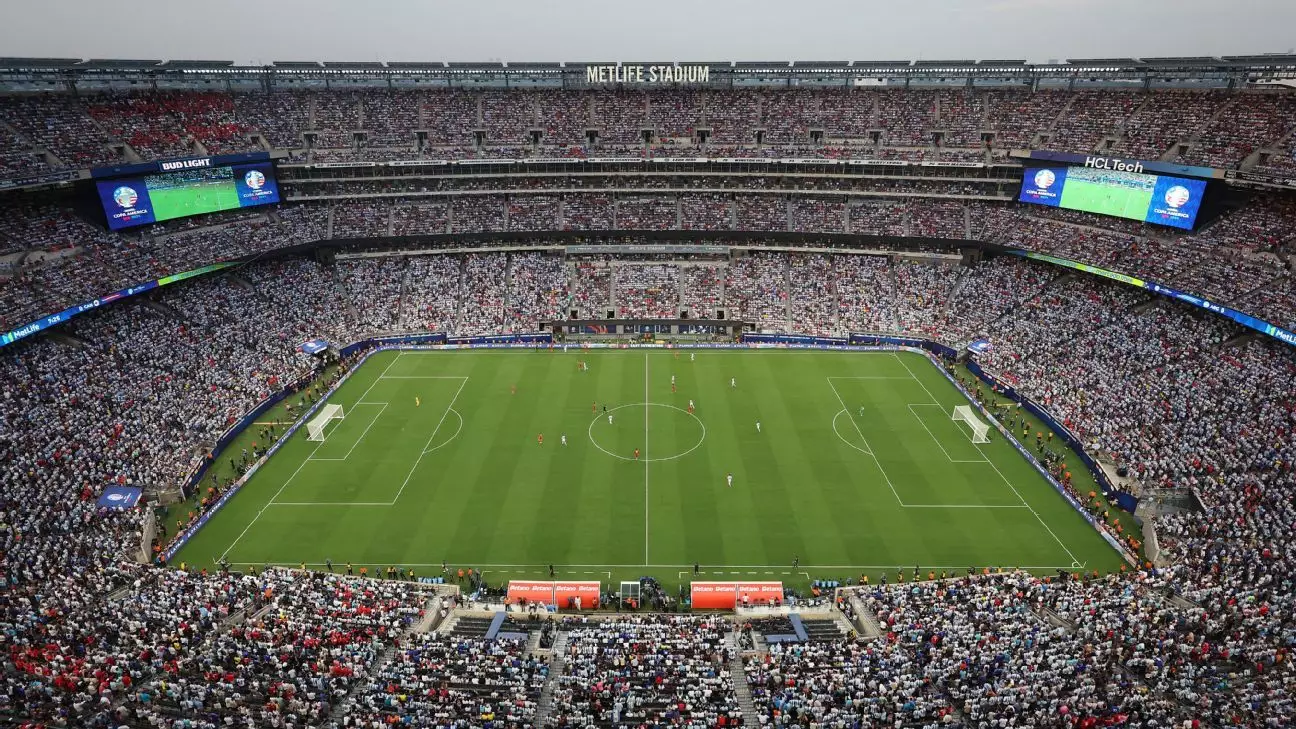In a recent statement, FIFA has urged passionate football supporters to be vigilant against purchasing tickets for the upcoming 2026 World Cup from unauthorized online platforms. This advisory emerged after concerns regarding ticket listings by various resale sites in the U.S. and Mexico came to light. Notably, as anticipation builds for this prestigious tournament, many fans are eager to secure their spots. However, FIFA has stressed that legitimate ticket sales will not commence until late 2025, despite the misleading advertisements currently circulating on secondary market websites.
According to FIFA, potential attendees should only buy tickets through their official channel at FIFA.com/tickets. The organization has made it clear that the sale of individual tickets will not start until late in 2025, and until then, fans should remain cautious. Hospitality packages are expected to launch in late 2024, but even these will be accessible solely through authorized platforms. FIFA’s statement emphasizes the importance of verifying the authenticity of ticket sources to safeguard fans from scams.
The issue has been exacerbated by the presence of well-known ticket resale platforms like StubHub, Vivid Seats, and Viagogo, which are already listing tickets for the tournament. Although FIFA has not yet indicated whether it will pursue legal action against these sites, its previous encounters with Viagogo serve as a stark reminder of the implications of unauthorized ticket sales. In 2018, FIFA took a stand against the resale site, accusing it of selling fraudulent tickets for the World Cup in Russia and claiming a “breach of the law on unfair competition.” This precedent illustrates the seriousness with which FIFA regards the integrity of its ticketing process.
Moreover, the ongoing scrutiny of the entire ticket resale market cannot be overlooked. The U.S. Department of Justice is presently investigating various practices in this space, having recently initiated an antitrust lawsuit against Ticketmaster and its parent company, Live Nation Entertainment. Allegations of monopolistic behaviors that suppress competition and inflate prices have raised alarms among consumers and regulators alike. While the federal government does not currently impose regulations on secondary ticket sales, the spotlight on this sector could influence future legislative changes.
FIFA encourages fans who wish to keep abreast of ticketing updates for the 2026 World Cup to register on their official website. By doing so, they will receive timely information and crucial updates regarding ticket sales as the event draws closer. The emphasis on official channels aims to protect fans from falling victim to fraudulent activities that are prevalent in the ticket resale industry.
The road to the 2026 FIFA World Cup is fraught with potential pitfalls for unwary fans. The crucial takeaway is to remain informed, cautious, and steadfastly committed to utilizing only the designated official channels for ticket purchases. The excitement of the World Cup should not be overshadowed by the risks posed by scam artists in an unregulated ticket marketplace.
